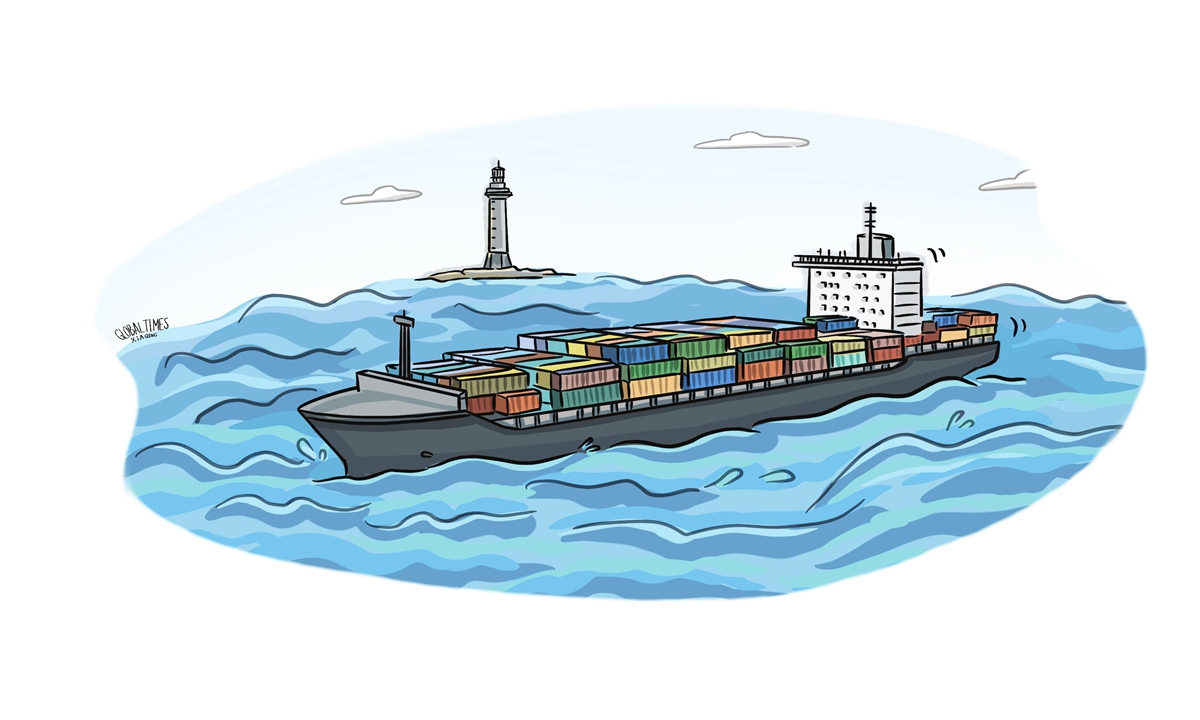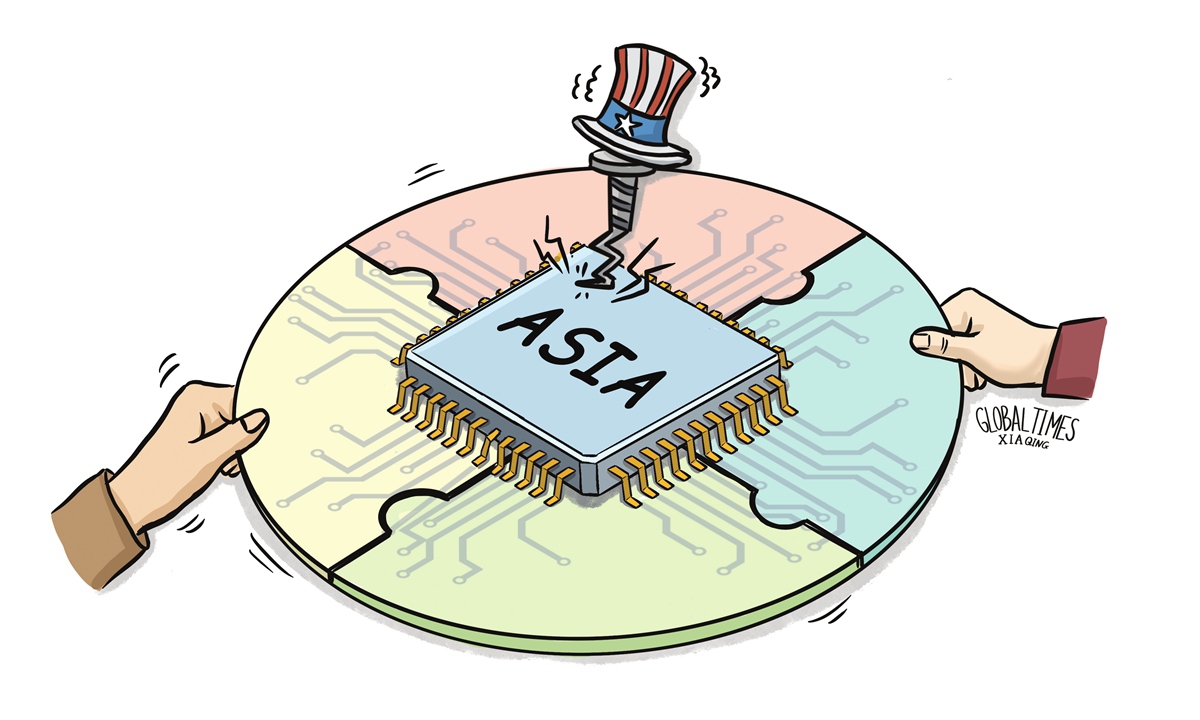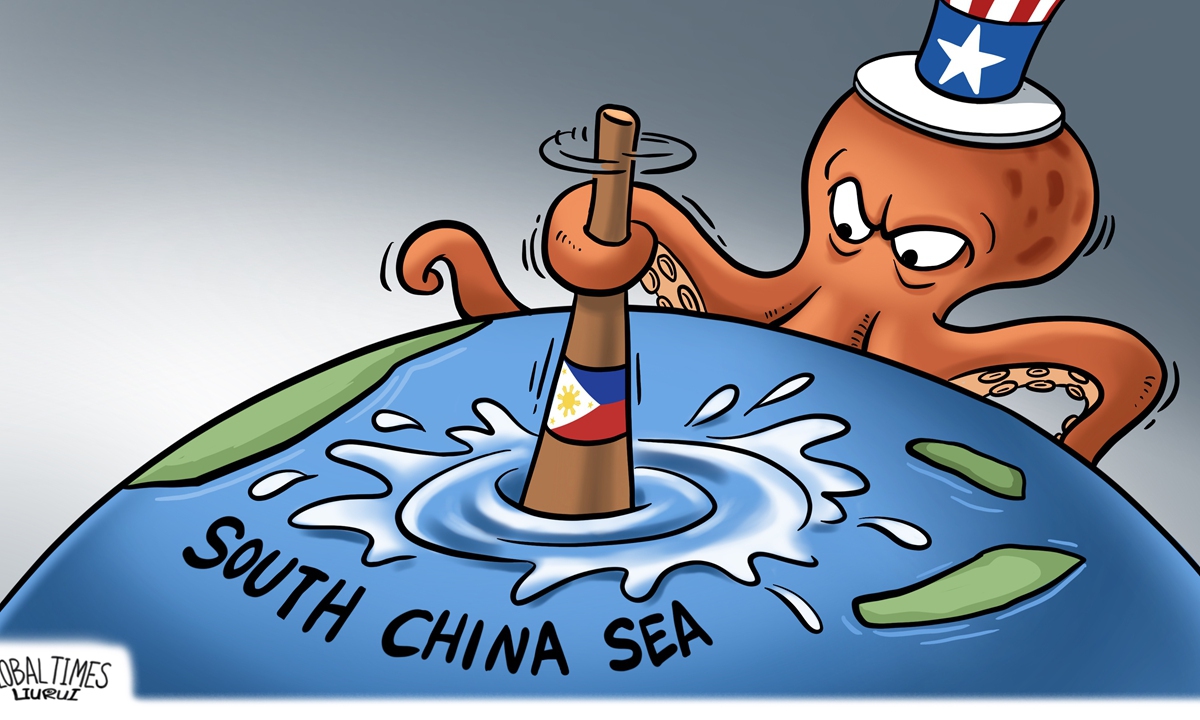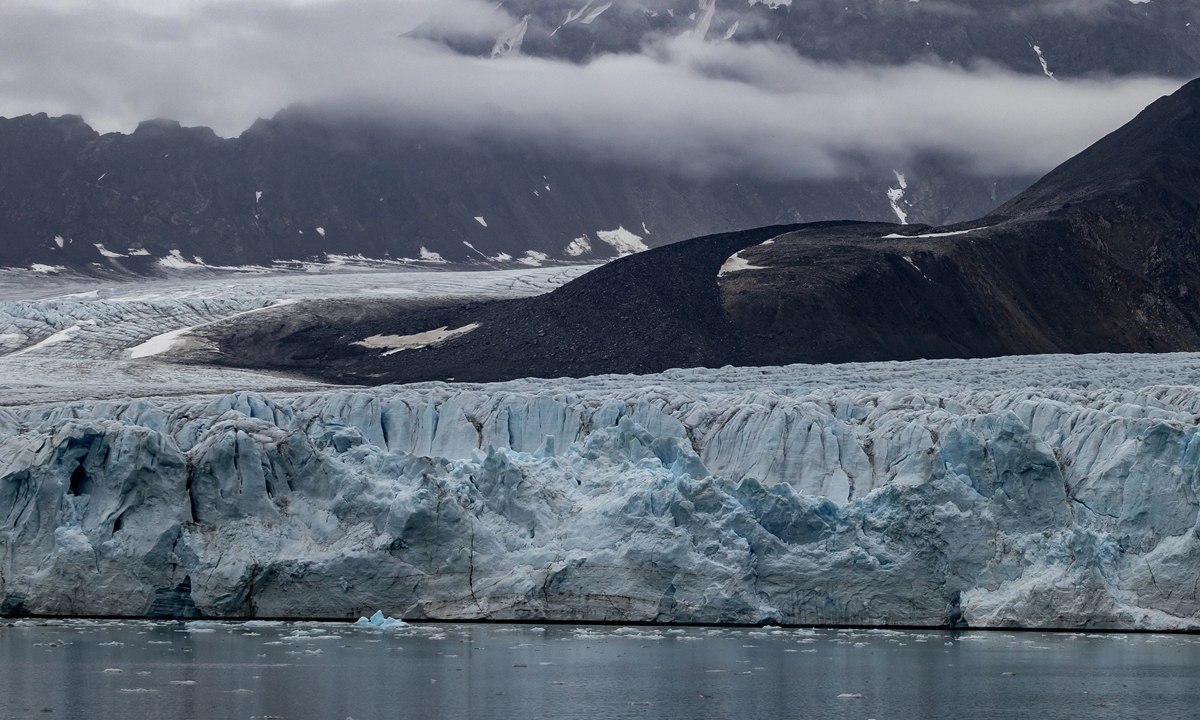GT Voice: China-Russia cooperation on Northern Sea Route will boost regional economy

Illustration: Xia Qing/GT
History has consistently shown that the optimization and innovation of trade routes is vital for promoting regional economic development. Collaboration between China and Russia on the Northern Sea Route is just such an innovative endeavor. As it is the shortest maritime passage linking northeast Asia and western Europe, the development and utilization of the Northern Sea Route hold significant implications for trade between China and Russia, as well as between East Asian economies and Europe.A joint report by the Institute of China and Contemporary Asia of the Russian Academy of Sciences and Russia's National Coordinating Center for International Business Cooperation recently said that Chinese companies are actively exploring the Northern Sea Route, Russian media outlet Sputnik said on its Chinese website on Wednesday.
The strong interest of Chinese shipping companies in the Northern Sea Route reflects their pursuit of new business opportunities and also bodes well for the potential for China-Russia cooperation in Arctic shipping.
Although some in the West tend to misinterpret normal cooperation between China and Russia on Arctic issues, their collaboration on the Northern Sea Route is based on mutual interests and the development needs of the regional economy.
As one of the key Arctic shipping routes, the Northern Sea Route is known as the shortest sea route linking Europe to Asia, offering multiple advantages such as reduced sailing times and lower sailing costs. The Korea Maritime Institute once predicted that Arctic shipping routes have the potential to emerge as important commercial alternatives to the traditional Asia-Europe route through the Suez Canal.
As the appeal of Arctic shipping grows, there is an increasing amount of international research and policy planning focused on Arctic development and route construction. For instance, in 2022, Russia approved a 13-year development plan for its Northern Sea Route, which includes the construction of more than 50 icebreakers and ice-class ships, the establishment of ports, terminals and emergency rescue centers, and the deployment of an orbital satellite constellation. It is estimated that about 2 trillion rubles ($22.38 billion) will need to be invested, according to the Xinhua News Agency.
This extensive plan reflects Russia's determination to develop the Northern Sea Route and the priority it attaches to this effort. To achieve its ambitious goals, Russia needs a stable and reliable long-term partner, as well as adequate technical and financial support.
From China's perspective, the Arctic shipping route holds significant implications for the development of its future trade network. Maritime transport constitutes about 95 percent of China's international trade. If the Northern Sea Route emerges as a viable commercial option, it will undoubtedly enhance convenience and cost-effectiveness for trade between China and Russia, as well as between China and Europe. Furthermore, this new shipping route has the potential to stimulate development in Northeast China, fostering revitalization and positioning the region as a new frontier of openness.
While the Northern Sea Route may offer many advantages, it also presents significant challenges. First of all, the unpredictability of navigation times each year restricts its utilization. Second, support services for navigation are inadequate, with notable deficiencies in rescue, anti-pollution, medical and cargo handling facilities along the route. That means the Arctic shipping route still has a long way to go from its current status to truly becoming a commercial option, and it requires more international cooperation.
All in all, promoting and strengthening bilateral and multilateral cooperation efforts related to Arctic routes will not only benefit China and Russia, but also serve the interests of regional economies and contribute to the global economic recovery.



